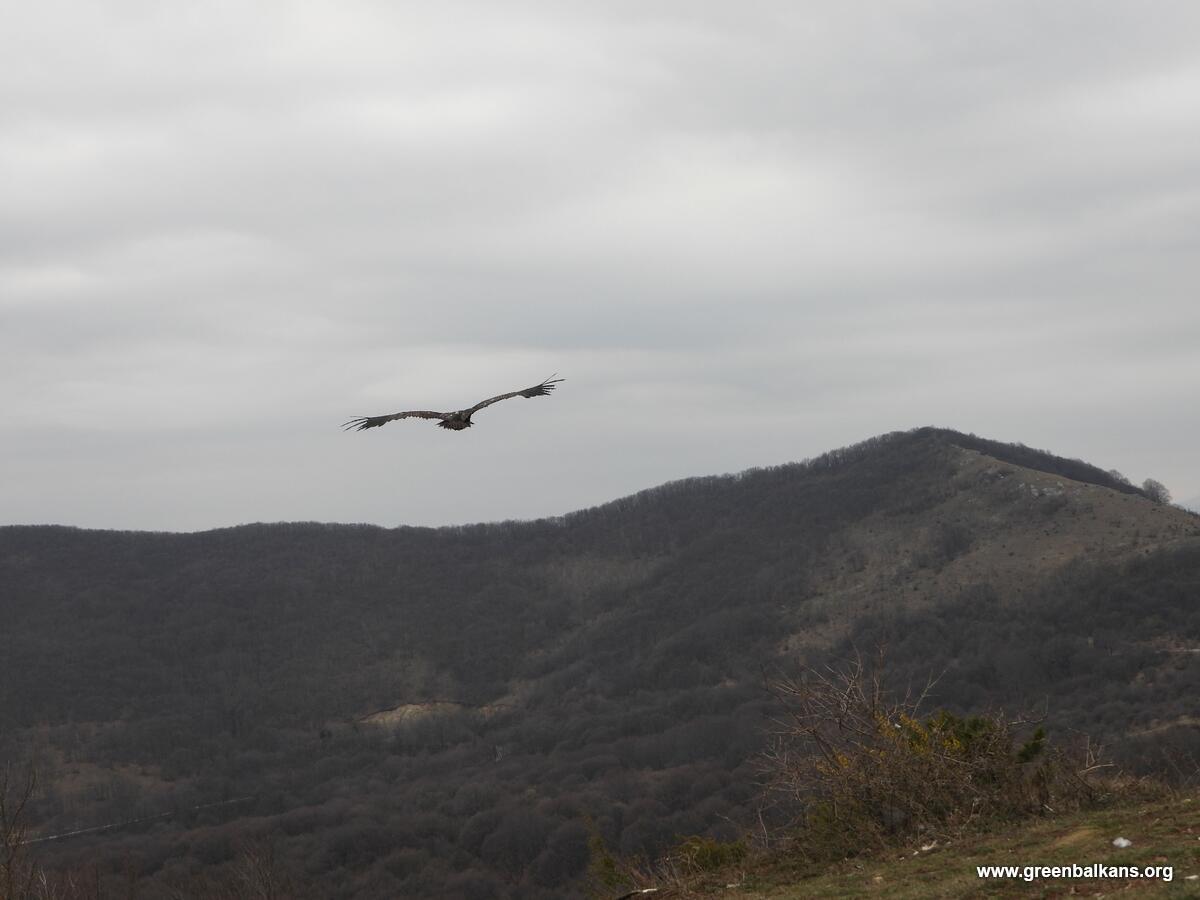An immature black vulture was seen last Sunday (3rd September) in Queluz, in the northern outskirts of Lisbon, the Portuguese capital (see photo). Black vultures have only recolonised Portugal 7 years ago, and have now at least three breeding colonies (18 pairs this year), all near the Spanish border (east of the country). The species ranges far and wide from the border in their foraging and dispersing trips, but it is not common to see vultures in Lisbon – let alone a black one.
The recolonization of Portugal benefited from the significant increase of black vultures in Spain, notably in nearby Extremadura and Andalucía, but the expansion into Portugal is remarkable as this species is extremely faithful to existing colonies, and takes a lot of time to establish new colonies elsewhere.
The species became extinct as breeding species in Portugal in the 1970s, mostly due to the use of poisoned carcasses targeting unwanted predators. An increasing population in Spain saw the species first return to breed in central Portugal (Tejo Internacional) in 2010 (where now there is a small colony of about 13 pairs), in the Douro in north-eastern Portugal (one single pair), and in Herdade da Contenda, a large estate owned in Moura (Alentejo, 3-4 pairs)
But it is not all good news for vultures in Iberia. The introduction of veterinary diclofenac – an anti-inflammatory painkiller used to treat livestock – in nearby Spain is a major emerging concern – and the Portuguese authorities are now considering allowing it in the country too! This drug is fatal to vultures that feed on contaminated carcasses, and is thought to be responsible for the catastrophic decline of vultures in Southeast Asia (over 90% in just 20 years). To date, no vulture deaths have been traced to the drug in Europe, but the risk is there. The VCF is working actively with many partners to try to ban the drug from Europe – see here
Photo: José Pascoal



